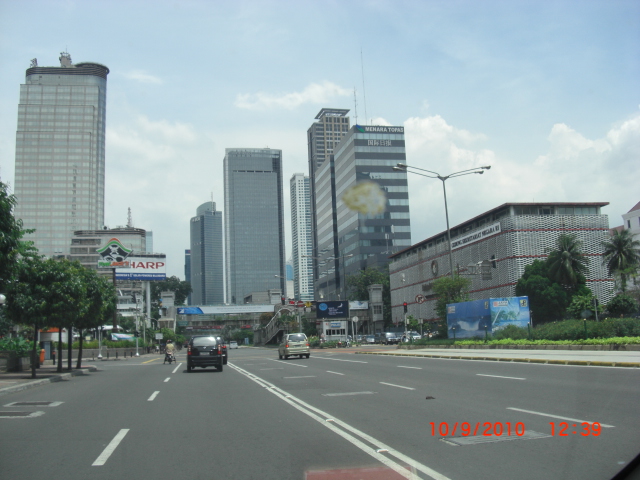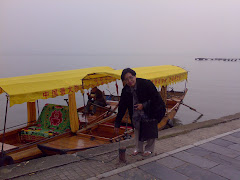INDONESIA ECONOMIC QUARTERLY: Current Challenges, Future Potential
 Indonesia’s economic performance through mid-2011 has been positive. Solid growth has been accompanied by further portfolio capital and foreign direct investment inflows. Public and financial sector balance sheets remain strong. However, events over the past quarter serve as a reminder of a number of Indonesia’s ongoing policy challenges. At the same time, the launch of the government’s master plan 2011-2025 has focused attention on the investments and policy reforms which can help Indonesia reach its future growth potential. Finally, heightened international risk aversion originating from the Greek debt crisis, and the potential market implications of any haircut, were it to occur, are a reminder of the external shocks which could prompt reversals of short-term capital flows to Indonesia. However, events over the past quarter are a reminder of the current challenges which are faced and the need to put in place, and implement, the policies and investments necessary for Indonesia to reach its potential as a leading global growth driver of the next few decades.
Indonesia’s economic performance through mid-2011 has been positive. Solid growth has been accompanied by further portfolio capital and foreign direct investment inflows. Public and financial sector balance sheets remain strong. However, events over the past quarter serve as a reminder of a number of Indonesia’s ongoing policy challenges. At the same time, the launch of the government’s master plan 2011-2025 has focused attention on the investments and policy reforms which can help Indonesia reach its future growth potential. Finally, heightened international risk aversion originating from the Greek debt crisis, and the potential market implications of any haircut, were it to occur, are a reminder of the external shocks which could prompt reversals of short-term capital flows to Indonesia. However, events over the past quarter are a reminder of the current challenges which are faced and the need to put in place, and implement, the policies and investments necessary for Indonesia to reach its potential as a leading global growth driver of the next few decades.
TOTAL DISBURSEMENT BY COUNTRY:
Source The World Bank, August 2011.
The quiet Jakarta during Idul Fitri, September 2010.
INDONESIA ECONOMIC RECOVERY PROGRAMS:
a country paper in power point format, presented by: Neneng Tarigan, participant of the Seminar on Economic Globalization International Industry Transfer, held in Wuhan, China, 2008.
For more information, please visit:http://www.4shared.com/document/b_sbLFT0/Indonesia.html
CHINA EXPERIENCE IN FOREIGN DIRECT INVESTMENT: As quoted from the presentation of Prof. Luo Shifan, during the Seminar on Globalization and International Industry Transfer, held in Wuhan, China, 2008, sponsored by MOFCOM (Ministry of Commerce China) and UNCTAD (United Nations Conference on Trade and Development), Organize by : CEVTC (China Europe Vocational Training Centre). For those who want to learn how China could make use optimally her foreign direct investment; this paper is worth reading. For more information, please visit:
http://www.4shared.com/document/deRDUHOx/FDI_CHINA.html
by Mr.Sun Yuan Jiang, Department of Trade and Economic Affars, Ministry of Commerce, PRC, presented for the Seminar on Economic Globalization International Industry Transfer, 2008. Mr. Sun is trying to highlight the balance in the globalization effects towards developing countries and the need for regional economic cooperation. For more information, please visit:
http://www.4shared.com/document/LDgzrBxW/Regional_Economic_Cooperation_.html
SUCCESSFUL EXPERIENCE AND LESSONS IN CHINA’s REFORMS, OPENING-UP AND DEVELOPMENT:
Training material for the Seminar on Globalization and International Industry Transfer, held in Wuhan, China, 2008. This paper elaborates: (1) How reform and opening-up is being carried out; (2) Why should we reform and opening-up; (3) How to reform, opening up and development; (4) Open the door to attract foreign investment; and (5) What is the essence of reform and opening up. Learning from China with her reformation programs, I consider this paper as worth reading. For more information, please visit:
http://www.4shared.com/document/x_U8HCie/EXPERI1.html
GROWTH DIAGNOTICS: by Ugo Panizza, Senior Economic Affairs Officer, UNCTAD. October 2008. His presentation will give us some understanding about the idea that there may be many reasons why an economy does not grow, but each reason generates a distinctive set of symptoms. For more information, please visit:
http://www.4shared.com/document/jFUy6FF6/Growth_Diagnostics1.html
AID AND DEBT RELIEF: by Ugo Panizza, Senior Economic Affairs Officer, UNCTAD. October 2008. His presentation will give you some understanding about Aid and Growth; and Some issues with the current aid architecture. This material is also worth reading.
http://www.4shared.com/document/h1d7BdOY/ChinaODADR.html
CURRENT TRENDS AND POLICY CHALLENGES IN THE WORLD ECONOMY:
by Alfredo Calcagno, Senior Economic Affairs Officer, UNCTAD. October 2008. His writing about this issue is so invaluable. For more information, please visit:
http://www.4shared.com/document/2gscQ1zw/Current_trends.html
THE EMERGENCE OF CHINA AND DEVELOPMENT STRATEGIES: by Jörg Mayer, Senior Economic Affairs Officer, UNCTAD. October 2008. At this presentation paper, Dr. Mayer gives an in-depth overviews on: China’s increasing importance in global economic relations; China’s growing economic weight (The rationale for reserve accumulation; Changes in the composition of China’s exports; China’s impact on other countries’ exports); China’s economic integration and changes in the terms of trade: and Implications for development strategies. For more information, please visit:
http://www.4shared.com/document/9swQtWJa/Chinas_emergence.html
POLICY SPACE: WHAT, FOR WHAT AND WHERE?
by Jörg Mayer, Senior Economic Affairs Officer, UNCTAD. October 2008. Aim here: address how to use existing national policy space, or even enlarge it, without roll-back or opting out of international commitments. Perspective: policy space debate needs to look at macro-economic, structural and financial market issues, in addition to trade. For more information, please visit:
http://www.4shared.com/document/MsM6lsNE/Policy_space.html
MACROECONOMIC CHALLENGES FOR RESOURCE-RICH ECONOMIES:
by Jörg Mayer, Senior Economic Affairs Officer, UNCTAD. October 2008. The issue here is: Why are some resource-rich economies (Australia, Botswana, Norway, etc) more successful than others? Malthus, Ricardo etc feared that economic growth would come to a halt because of limitations on the availability of natural resources; Between 1870 and 1913, some resource-rich countries (Australia, Scandinavia, US) outperformed resource-poor countries and became affluent and technologically highly developed countries; After World War II scepticism about resource-based development rooted in forecast of a secular decline in global primary-commodity demand and prices; While, more recently, emphasis that natural resources may have an adverse impact on economic performance even in period of strongly rising commodity prices. This brilliant thought and an in-depth comprehensive study of Dr. Mayer, is really worth reading and recommendable for academics and policy makers. For more information, please visit:
http://www.4shared.com/document/D1V6xqNb/Resource-rich_economies.html
THE ROLE OF REGIONAL COOPERATION IN DEVELOPMENT:
by Jörg Mayer, Senior Economic Affairs Officer, UNCTAD. October 2008.The number of trade agreements notified to the WTO has increased rapidly since the early 1990s – new agreements are bilateral rather than plurilateral.Most new trade agreements are Free Trade Agreements.Most new trade agreements are between countries from different regions and at different levels of development. The trade-offs of North-South FTAs is one of many examples. Motivation for North-South FTAs: belief that multilateral trade agreements are moving too slowly in improving access to developed-country export markets or harmonizing rules in areas such as IPRs, investment, etc. North-South FTAs have two important features: Firstly, They involve reciprocal commitments, eliminating the special and differential treatment granted to developing countries through other agreements (e.g. PTAs); Secondly, They make the reduction in market access barriers conditional on liberalization in areas such as intellectual property rights (IPRs), investment, government procurement, competition policy, sanitary and phytosanitary regulations, environmental and labour standards, regulations concerning capital flows, etc. This paper is really debatable and highly recommendable for officials involved in international trade negotiation forum. For more information, please visit:
http://www.4shared.com/document/X50ZfGf9/Regional_cooperation.html
STIMULATING THE DYNAMIC FORCES OF MARKETS:
a presentation paper by Jörg Mayer, Senior Economic Affairs Officer, UNCTAD, delivered at the Seminar on “Addressing the Opportunities and Challenges of Globalization for Development”, Wuhan, China, October 2008. This paper among others covered an overview on: Innovative entrepreneurs as drivers of economic development; the importance of industry for development: and the strategies for industrial development (Attracting foreign direct investment and Open-economy industrial policy).
http://www.4shared.com/document/xyWbY_y4/DynForces_2008.html
 MILLENIUM CHALLENGE ACCOUNT: This presentation paper, content of information on Bush administration efforts in encountering global economic challenges. As a reference; this paper is quite useful in understanding government policies at certain circumstances, included during a transition period from a superpower country like USA. The outline of the paper among others covered general information on:
MILLENIUM CHALLENGE ACCOUNT: This presentation paper, content of information on Bush administration efforts in encountering global economic challenges. As a reference; this paper is quite useful in understanding government policies at certain circumstances, included during a transition period from a superpower country like USA. The outline of the paper among others covered general information on:
- The MCA which is according to the then administration will “reward nations that root out corruption, respect human rights, and adhere to the rule of law… invest in better health care, better schools and broader immunization… [and] have more open markets and sustainable budget policies, nations where people can start and operate a small business without running the gauntlets of bureaucracy and bribery.”
- The promotion of economic freedom.
- etc. For more information, please visit:



 SAVING, INTERNATIONAL CAPITAL AND ALL THAT: by Ugo Panizza, Senior Economic Affairs Officer, UNCTAD. October 2008. His presentation will give you some understanding about capital flows around the world, the balance of payment and the Neo Classical Theory etc. I strongly recommend you to understand his brilliant thought, since this topic was written during the world economic crises that hit and begin in USA. I wish you could meet Mr. Panizza in person and discuss the matter with him.
SAVING, INTERNATIONAL CAPITAL AND ALL THAT: by Ugo Panizza, Senior Economic Affairs Officer, UNCTAD. October 2008. His presentation will give you some understanding about capital flows around the world, the balance of payment and the Neo Classical Theory etc. I strongly recommend you to understand his brilliant thought, since this topic was written during the world economic crises that hit and begin in USA. I wish you could meet Mr. Panizza in person and discuss the matter with him.






![[CARTOON] Darth Vader Vacation. cartoon, DarthVadar, spoof, StarWars, vacation](https://i0.wp.com/4.bp.blogspot.com/_6Un-_YHrxJo/TPmWajI6V3I/AAAAAAAABo8/sqCTedATzgI/s320/toon1062%2BDarth%2BWader.jpg)





Great read. Thanks for the info!
Regards for sharing Economy | TRADE AND FASHION with us keep update bro love your article about Economy | TRADE AND FASHION .
It can be tough to write about this subject. I think you did an superb job though! Thanks for this!
Thanks for this article 🙂
Magnificent website. Plenty of useful info here. I’m sending it to several friends ans also sharing in delicious. And obviously, thanks for your sweat!
I would like to thank you for the efforts you have put in writing this site. I’m hoping the same high-grade site post from you in the upcoming as well. Actually your creative writing abilities has encouraged me to get my own web site now. Really the blogging is spreading its wings fast. Your write up is a great example of it.
I really relate to that post. Thanks for the info.
We are a group of volunteers and opening a new scheme in our community. Your web site offered us with valuable information to work on. You’ve done an impressive job and our whole community will be grateful to you.